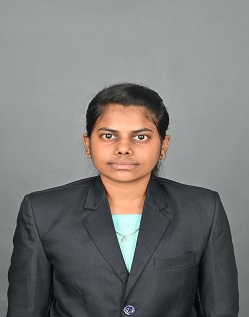Latest News:
Phone 91-422-441 9999
Email id info@kgcas.com
PEOs | PSOs | POs
Program Educational Objectives (PEOs)
The B.Sc. Electronics and Communication Systems program describe accomplishments that graduates are expected to attain within five to seven years after graduation
- PEO1 – Provide graduates with a strong foundation in Electronics domain and to enable them to devise and deliver efficient solutions to challenging problems in Electronics, Communications and allied disciplines.
- PEO2 – Impart analytic and thinking skills to develop initiatives and innovative ideas for R&D, Industry and societal requirements.
- PEO3 – Provide sound theoretical and practical knowledge of Electronics, managerial and entrepreneurial skills to enable students to contribute to the well being of society with a global outlook.
- PEO4 – Inculcate qualities of teamwork as well as social, interpersonal and leadership skills and an ability to adapt to evolving professional environments in the domains of engineering and technology.
- PEO5 – Motivate graduates to become good human beings and responsible citizens for the overall welfare of the society.
- PEO6 – Develop attitude in lifelong learning, applying and adapting new ideas and technologies as their field evolves.
- PEO7 – To prepare graduates who will have knowledge, ability and courage to pursue higher studies and research.
Program Specific Outcomes (PSOs)
After the successful completion of B.Sc. Electronics and Communication Systemsprogram, the students are expected to
- PSO1 – Demonstrate proficiency in use of software and hardware required to practice electronics and communication profession.
- PSO2 – Graduates will be able to apply fundamentals of electronics in various domains of analog and digital systems
- PSO3 – Apprehend and analyses specific engineering problems of communication, electronic circuits, computer programming, embedded systems, VLSI design and semiconductor technology by applying the knowledge of basic sciences, engineering mathematics and engineering fundamentals.
- PSO4 – Ability to communicate effectively with excellent interpersonal skills and demonstrate the practice of professional ethics for societal benefit.
- PSO5 – Graduates will be able to apply fundamentals of electronics in various domains of analog and digital systems.
- PSO6 – Use embedded system concepts for developing IoT applications.
Program Outcomes (POs)
On successful completion of the B.Sc. Electronics and Communication Systems program
- PO1 – Engineering knowledge: Apply the knowledge of mathematics, Science, Engineering fundamentals, and an engineering specialization to the solution of complex engineering problems.
- PO2 – Problem analysis: Identify, formulate, review research literature and analyses complex engineering problems reaching substantiated conclusion using principles of mathematics and Engineering sciences.
- PO3 – Design/Development of solutions: Design solutions for complex Engineering problems and design system components or processes that meet the specified needs with appropriate consideration for the public health and safety, and the cultural, societal and environmental conditions.
- PO4 – Conduct investigation of complex problems: Use research based knowledge and research methods including design of experiments, analysis and interpretation of data, and synthesis of the information to provide valid conclusions.
- PO5 – Modern tool usage: Create, select, and apply appropriate techniques, resources, and modern engineering and IT tools including prediction and modeling to complex engineering activities with an understanding of the limitations.
- PO6 – The engineer and society: Apply reasoning informed by the contextual knowledge to assess societal, health, safety, legal and cultural issues and the consequent responsibilities relevant to the professional engineering practice.
- PO7 – Environment and Sustainability: Understand the impact of the professional engineering solution in societal and environmental contexts, and demonstrate the knowledge of and need fire sustainable development.
- PO8 – Ethics: Apply ethical principles and commit to professional ethics and responsibilities and norms of the engineering practice.
- PO9 – Individual and team work: Function effectively as an individual, an as a member or leader in diverse teams, and in multidisciplinary settings.
- PO10 – Life-Long learning: Recognize the need for and have the preparation and ability to engage in independent and life-long learning in the broadest context of technological change.






























